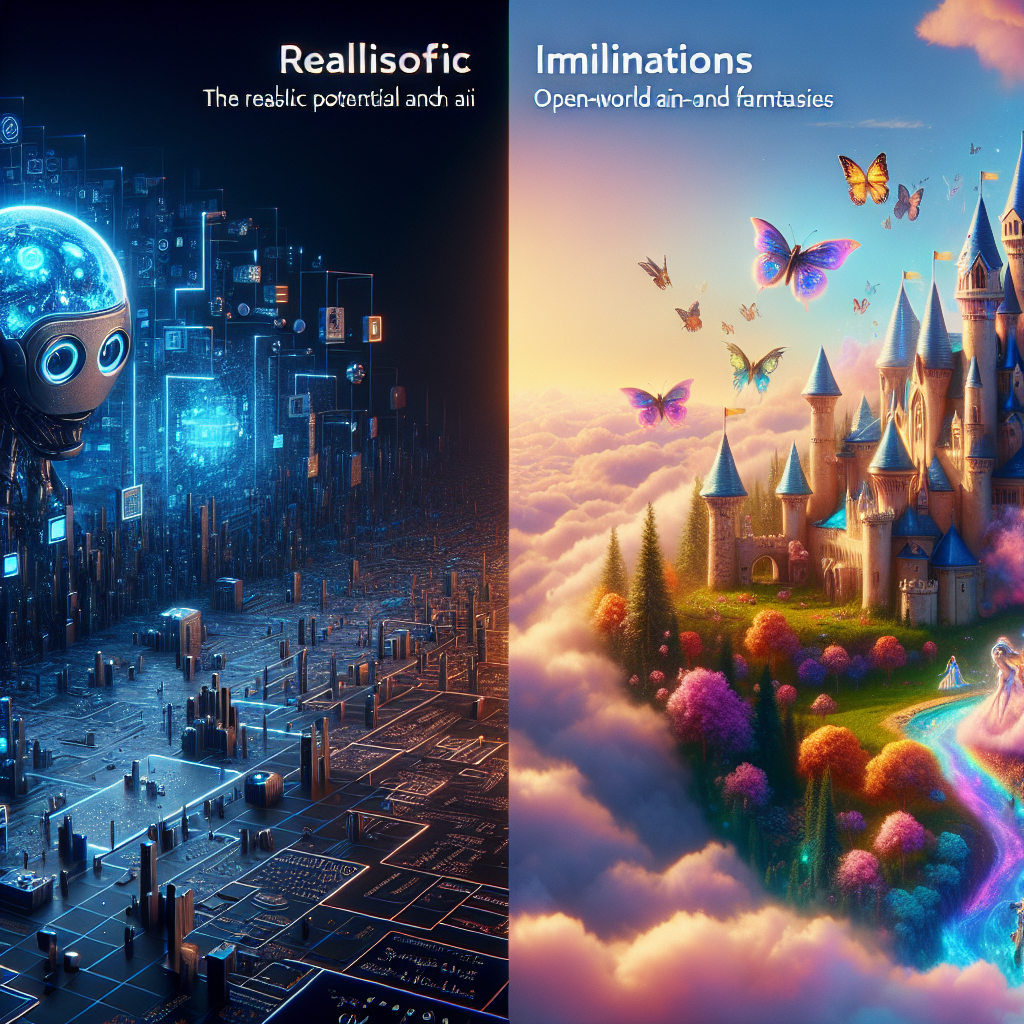
Real AI Agents: Solving Bounded Problems, Not Open-World Fantasies
Artificial Intelligence (AI) has rapidly evolved over the past decade, shaping numerous industries and transforming how we approach problem-solving. However, amidst the hype surrounding AI’s limitless potential, it’s essential to focus on the realities of what AI agents can accomplish today—primarily, solving bounded problems instead of getting lost in open-world fantasies.
Bounded problems are those that are well-defined, with specific inputs, outputs, and constraints, whereas open-world problems lack clear boundaries and require continuous learning and adaptability. The distinction between these two categories is essential for understanding the current capabilities of AI agents and their practical applications.
Understanding Bounded Problems
Bounded problems are characterized by definable parameters and constraints. Examples of bounded problems include:
– **Recommendation systems** that suggest products based on user preferences.
– **Fraud detection** systems that identify suspicious transactions based on defined criteria.
– **Chatbots** designed to handle specific customer queries and tasks.
AI agents excel in these scenarios by leveraging machine learning algorithms, data analytics, and predefined rule sets to deliver efficient and accurate results. By focusing on bounded problems, businesses can implement AI solutions that generate tangible benefits, such as improved customer satisfaction and enhanced operational efficiency.
Challenges of Open-World Problems
Contrarily, open-world problems present a myriad of challenges. These scenarios often lack clear parameters and require AI systems to adapt to constantly changing environments. Some examples of open-world problems include:
– Natural language processing in diverse and evolving linguistic contexts.
– Autonomous driving in varying traffic conditions and urban settings.
– Complex decision-making in dynamically shifting market landscapes.
The unpredictable nature of open-world problems makes it challenging for AI agents to provide reliable outcomes. Many AI systems still struggle with generalizing from learned experiences to new and varied situations. This limitation has led to unrealistic expectations regarding AI’s capabilities, fostering the myth that AI can solve any problem without restrictions.
Why Focus on Realistic AI Applications?
By centering efforts on bounded problems, businesses can experience several advantages:
– **Efficiency**: Streamlined processes lead to quicker decision-making.
– **Scalability**: Solutions can be easily adapted and scaled to fit growing demands.
– **Cost-effectiveness**: Targeted problem-solving reduces resource expenditure.
Moreover, focusing on bounded problems encourages businesses to invest in AI solutions that can be effectively measured and refined. Companies can analyze performance metrics, iterate on their strategies, and develop truly impactful AI systems within their operational frameworks.
The Role of AI Agents in Business Today
AI agents play a significant role in enhancing various business functions today. Some practical applications include:
– **Customer Support**: AI-driven chatbots provide continuous assistance, handling customer inquiries 24/7.
– **Marketing Automation**: Machine learning algorithms analyze consumer behavior, enabling personalized marketing campaigns that resonate with target audiences.
– **Supply Chain Optimization**: AI agents predict demand fluctuations, improving inventory management and logistics.
These applications underscore the importance of understanding the constraints within which AI operates. By acknowledging the boundaries of AI capability, businesses can make better-informed decisions about the technologies they adopt.
Looking to the Future of AI
While the current capabilities of AI agents may seem limited when compared to the visions of speculative open-world scenarios, continuous advancements in technology are paving the way for improved functionalities. As researchers strive to enhance AI adaptability, there is hope for a future where AI agents can tackle more complex, open-world problems with greater proficiency.
Nevertheless, maintaining a focus on bounded problems allows companies to effectively harness existing AI technologies while preparing for future innovations. Developing strategic, realistic approaches ensures that organizations can leverage AI’s potential without succumbing to the distractions created by overblown expectations.
As our world becomes increasingly data-driven, understanding the nuances of AI capabilities will be vital for businesses looking to remain competitive. Striving for realistic applications of AI ensures that organizations can blend technology with human expertise, fostering environments where informed decisions and creativity thrive.
If your business is looking to implement effective AI solutions that address bounded problems, Max Advanced Solutions can help you navigate the complexities of AI technology. Our team of experts is ready to assist you in identifying your unique challenges and crafting tailored strategies that suit your operational needs.
To learn more about how we can assist you, **please fill out our [project inquiry form](https://maxadvancedsolutions.com/project-inquiry-form/)** for a free consultation.
Stay connected and gain insights into the latest trends in AI and technology. At Max Advanced Solutions, we frequently update our resources and share tips on our Instagram and our YouTube channel.
If you need any help with implementing Ai agents to automate your business operations, reach out for a free consultation. Simply fill out our project inquiry form and let us guide your business to new heights of online success. Stay informed with our latest updates by visiting our Blog.

